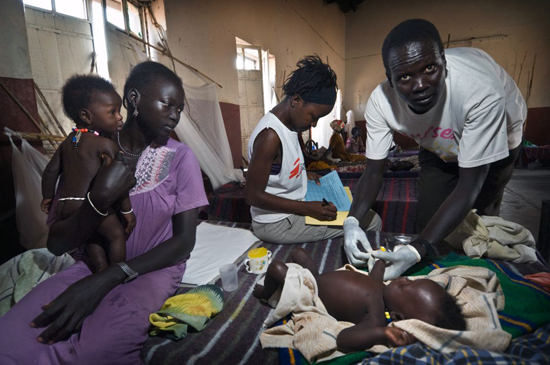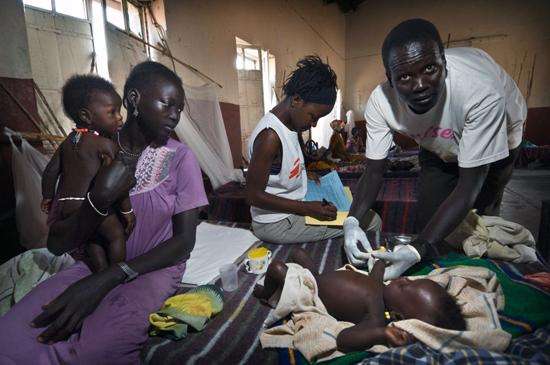
Sudan 2007 © Sven Torfinn
MSF is providing emergency medical assistance to the victims of a recent violent attack on south Sudanese villages, which have displaced up to 24,000 people.
On August 29, a violent attack in Twic East County, Jonglei State in Southern Sudan, resulted in the reported deaths of 42 people, many of them women and children. Doctors Without Borders/Médecins Sans Frontières (MSF) is currently mobilizing resources to help the victims of the attack, which injured more than 60 persons and displaced up to 24,000 people.
This latest attack is just one in a series of escalating so-called inter-ethnic clashes in Jonglei, Upper Nile and Lake States, which have displaced up to 140,000 people. Attacks by the Lord’s Resistance Army (LRA) in the Equatorial States, have also reportedly forced 65,000 Sudanese from their homes this year, and resulted in the deaths and abductions of hundreds of others.
Women and children, usually spared in this fighting, are now deliberately targeted and the number of deaths are higher than the number of wounded.
This combination of violent attacks across the region aggravates an already dire humanitarian situation for the people of Southern Sudan: "We have seen a drastic escalation in violence across Southern Sudan this year—from the Equatorial States besieged by LRA attacks, to the brutal clashes in Jonglei, Upper Nile and Lake States”, says Jonathan Whittall, MSF head of mission in Southern Sudan.
According to Whittall, this attack represents a new development: "The violent clashes are different to the traditional 'cattle rustling' that normally occurs each year. Women and children, usually spared in this fighting, are now deliberately targeted and the number of deaths are higher than the number of wounded. In the last six violent incidents that MSF responded to in Jonglei and Upper Nile States over the last six months, official figures show that 1,057 people were killed in contrast to 259 wounded, with more than 60,000 displaced. This is new—the intention is to attack a village and to kill. The result is a population living in total fear, with significant humanitarian and medical needs.”
The situation is particularly worrying with the current hunger gap, exacerbated by late rains and insecurity this year. We are distributing emergency food to the children now, as many of them haven’t eaten for days.
Immediately after the latest violence erupted, an MSF team traveled to Twic East County to support local health facilities and to assess medical and humanitarian needs. Once there, the gravity of the situation was clear to MSF’s head of mission: “People fled their villages without anything. With constant rumors of further violence, they are completely terrified. They urgently require humanitarian assistance—with food and shelter the most pressing priorities. The situation is particularly worrying with the current hunger gap, exacerbated by late rains and insecurity this year. We are distributing emergency food to the children now, as many of them haven’t eaten for days.”
MSF has donated medical supplies to help treat the injured being cared for in a local health center in Panyangor and is now actively screening for malnutrition—referring any malnourished to the health centre for treatment. MSF is also carrying out an emergency food distribution, targeting 4,500 children under five years of age, to try to prevent malnutrition and to cover the gap before more humanitarian assistance arrives.




